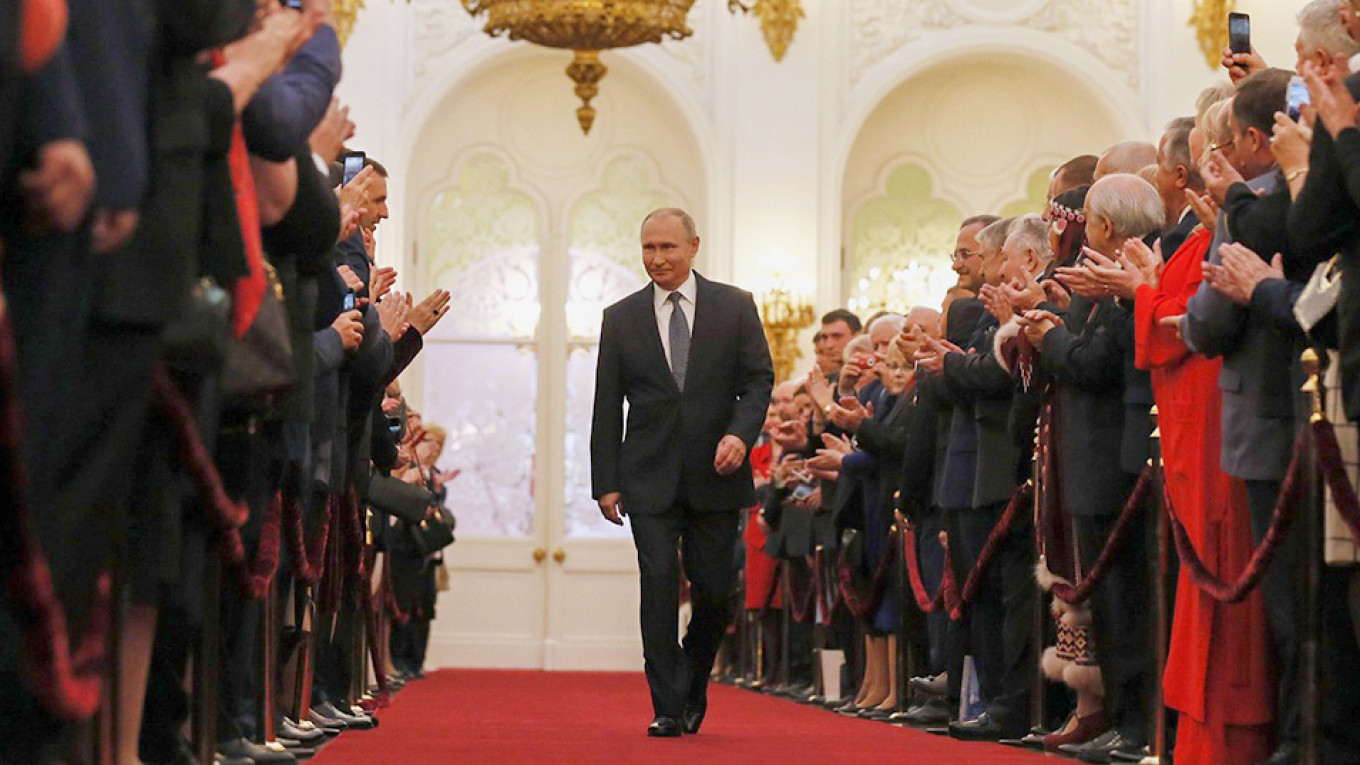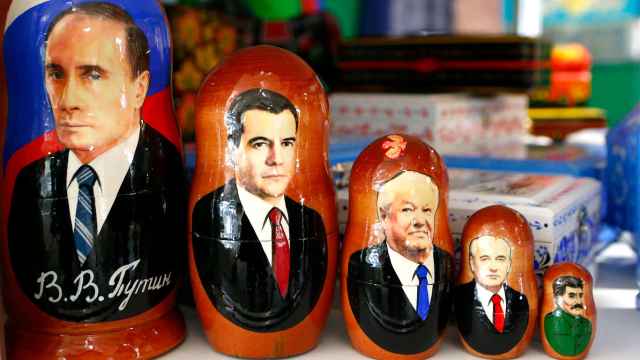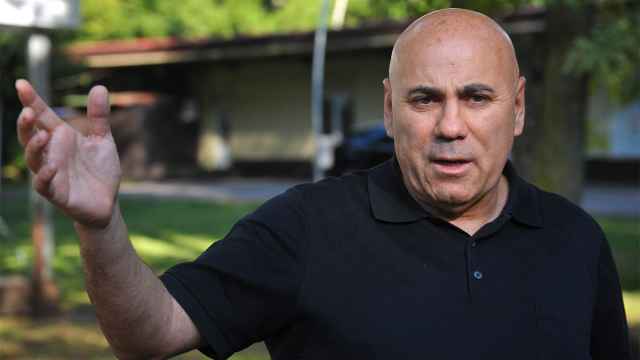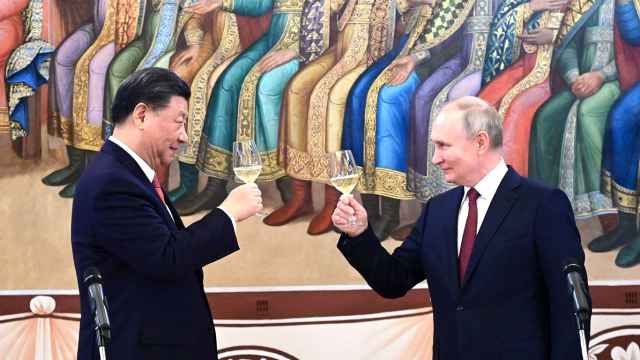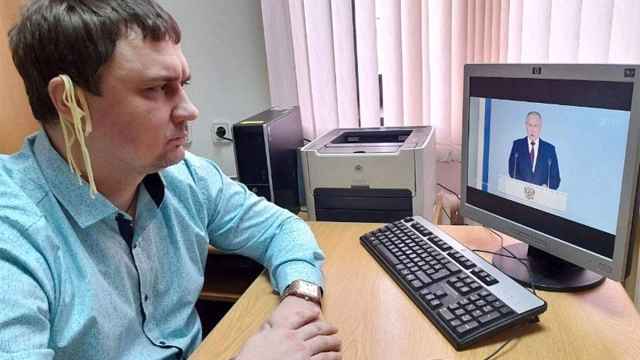Russian President Vladimir Putin was appointed acting prime minister on Aug. 9, 1999, by then-president Boris Yeltsin. He has been in office as president or prime minister ever since, a period spanning two decades.
Here are some highlights of Putin's 20 years in power:
Aug. 9, 1999 — During an economic crisis, Boris Yeltsin names little-known security chief Vladimir Putin as his fifth acting prime minister in less than a year, and says he wants Putin to succeed him as president. In the following weeks, apartment bombings across Russia kill more than 300 people, which Putin blames on Chechen terrorists. His popularity is boosted by his tough response, which includes the aerial bombing of parts of Chechnya and an assault to recapture the breakaway southern province. Some Kremlin critics question if Chechen terrorists were really to blame for the apartment bombings.
Dec. 31, 1999 — An ailing Yeltsin resigns, names Putin acting president.
March 26, 2000 — Putin wins his first presidential election.
Aug. 12, 2000 — The Kursk nuclear-powered submarine sinks to the bottom of the Barents Sea killing all 118 crew after an explosion onboard. Putin’s image suffers a jolt after he comments on the crisis only after four days.
2002 — Chechen militants take more than 800 people hostage at a Moscow theater. Special forces end the siege, but use a poison gas in the process which kills many of the hostages.
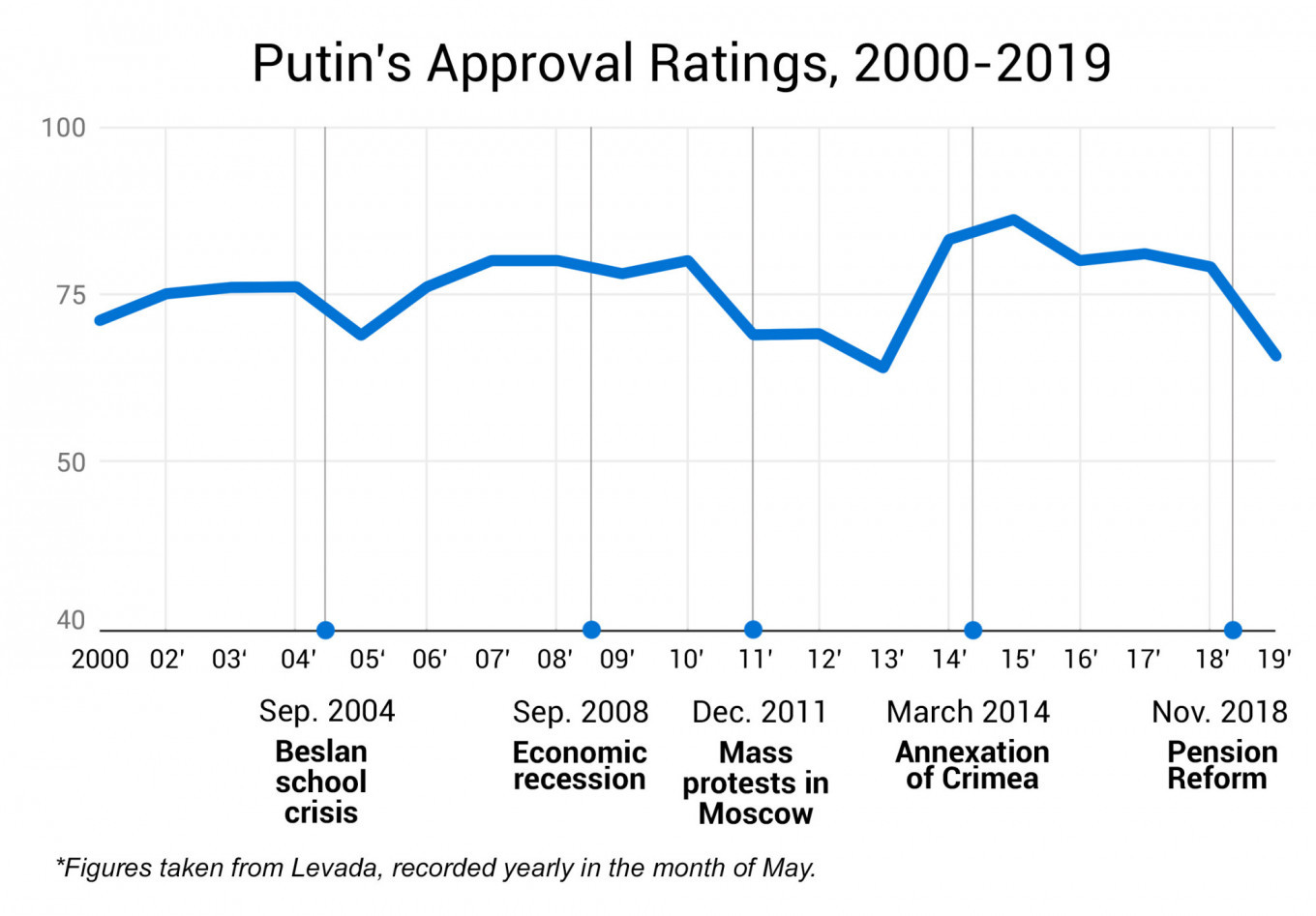
2003 — Oil tycoon Mikhail Khodorkovsky is arrested and charged with fraud. He is later found guilty and jailed in a case his supporters said was punishment for his meddling in politics. He is only released in 2013 after Putin pardons him.
March 2004 — Putin wins second term as president with more than 70% of the vote after oil prices fuel a consumer boom and raise living standards, a trend that continues for another four years.
September 2004 — Islamist fighters seize more than 1,000 people in a school in Beslan, southern Russia, triggering a three-day siege that ends in gunfire. A total of 334 hostages are killed. Over half of them are children. Some parents say the authorities botched the handling of the siege and blame Putin.
December 2004 — Putin scraps direct elections for regional governors making them, in effect, Kremlin appointees. Putin says the move is needed to keep Russia together.
2005 — Putin describes the 1991 collapse of the Soviet Union as the "greatest geopolitical catastrophe" of the twentieth century.
2006 — Investigative journalist Anna Politkovskaya, a critic of rights abuses in Chechnya, is murdered in Moscow on Putin's birthday. Kremlin critic Alexander Litvinenko dies in London that same year after being poisoned with a radioactive substance. A British inquiry years later concludes he was killed by Russian spies.
2007 — Putin gives a speech in Munich in which he lashes out at the United States, accusing Washington of the "almost uncontained hyper use of force in international relations."
May 2008 — Constitutional limits on him serving more than two consecutive presidential terms see Putin become prime minister after his ally, Dmitry Medvedev, becomes president.
August 2008 — Russia fights and wins a short war with Georgia which loses control over two breakaway regions that are garrisoned with Russian troops.
2012 — Putin returns to the presidency, winning re-election with over 60% of the vote after a decision to extend presidential terms to six from four years. Large anti-Putin protests take place before and after the vote with critics alleging voter fraud.
Feb 7-23, 2014 — Russia hosts the Winter Olympic Games in the Black Sea resort of Sochi.
Feb. 27, 2014 — Russian troops start annexing Ukraine's Crimea region after Ukrainian protesters oust the country's Russia-friendly president Viktor Yanukovich. Russia incorporates Crimea the following month after a referendum condemned by the West. The United States and EU go on to impose sanctions on Moscow.
April 2014 — A pro-Russian separatist uprising breaks out in eastern Ukraine which results in a conflict, still ongoing, which hands the separatists control of a vast swath of territory and leaves over 13,000 people dead. Western countries accuse Russia of backing the uprising; Moscow denies direct involvement.
Sept. 30, 2015 — Russia launches airstrikes in Syria in its biggest Middle East intervention in decades, turning the tide of the conflict in President Bashar al-Assad's favor.
November 2016 — Donald Trump is elected president of the United States after promising to improve battered ties with Moscow. U.S. authorities determine Russia tried to interfere in the election in his favor, however, casting a pall over U.S-Russia ties despite Russian denials.
March 4, 2018 — A former Russian spy, Sergei Skripal, and his daughter are poisoned in England with a nerve agent. They survive but a woman who lives nearby dies after her partner brings home the poison found in a discarded perfume bottle. Britain accuses Moscow, which denies involvement.
March 19, 2018 — Putin wins a landslide re-election victory and the mandate to stay in office until 2024.
June/July 2018 — Russia hosts the men's football FIFA World Cup.
2019 — Protests break out in Moscow over a municipal election which the anti-Kremlin opposition says is unfair. Putin has yet to comment on the demonstrations.
A Message from The Moscow Times:
Dear readers,
We are facing unprecedented challenges. Russia's Prosecutor General's Office has designated The Moscow Times as an "undesirable" organization, criminalizing our work and putting our staff at risk of prosecution. This follows our earlier unjust labeling as a "foreign agent."
These actions are direct attempts to silence independent journalism in Russia. The authorities claim our work "discredits the decisions of the Russian leadership." We see things differently: we strive to provide accurate, unbiased reporting on Russia.
We, the journalists of The Moscow Times, refuse to be silenced. But to continue our work, we need your help.
Your support, no matter how small, makes a world of difference. If you can, please support us monthly starting from just $2. It's quick to set up, and every contribution makes a significant impact.
By supporting The Moscow Times, you're defending open, independent journalism in the face of repression. Thank you for standing with us.
Remind me later.



